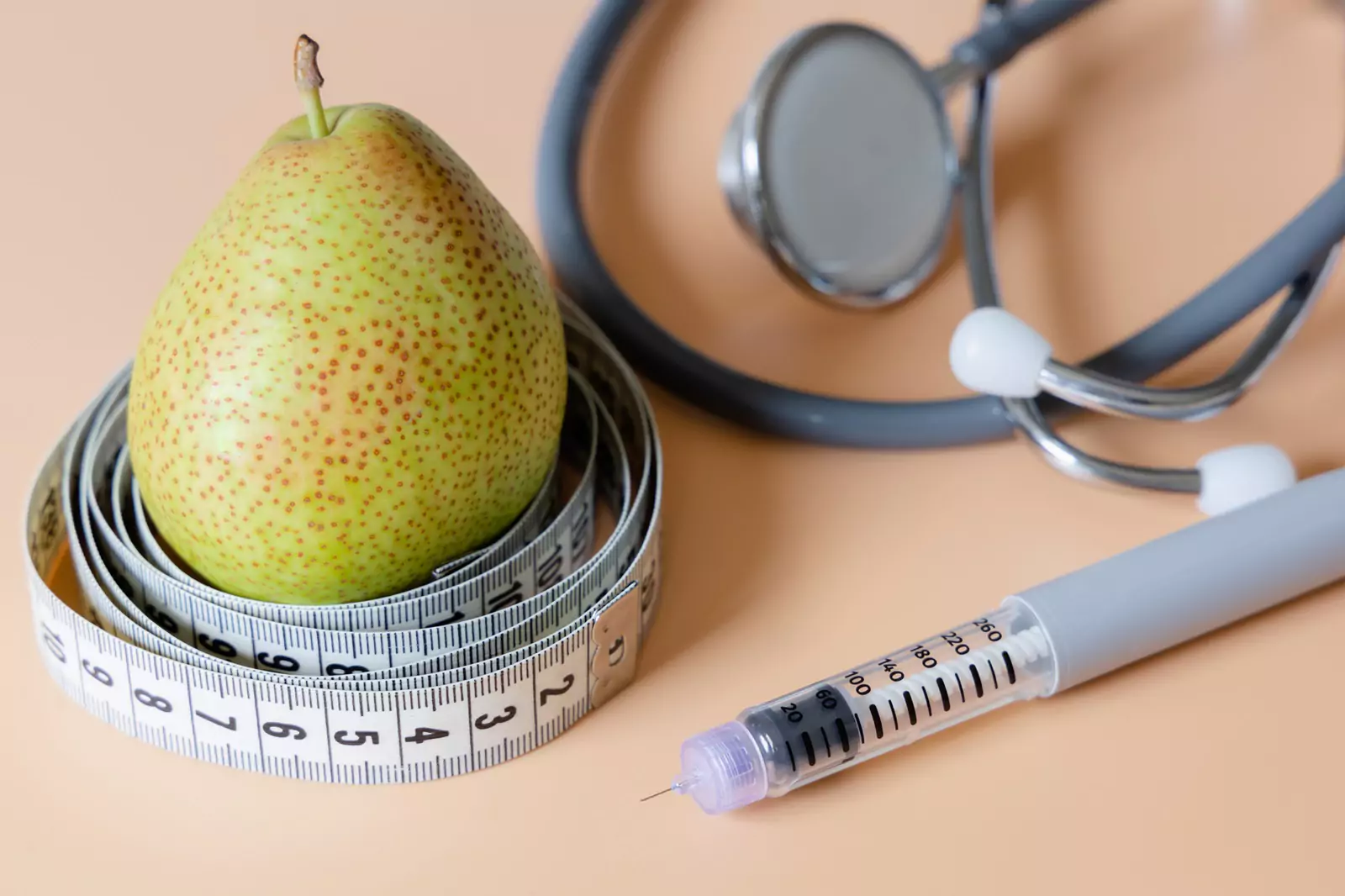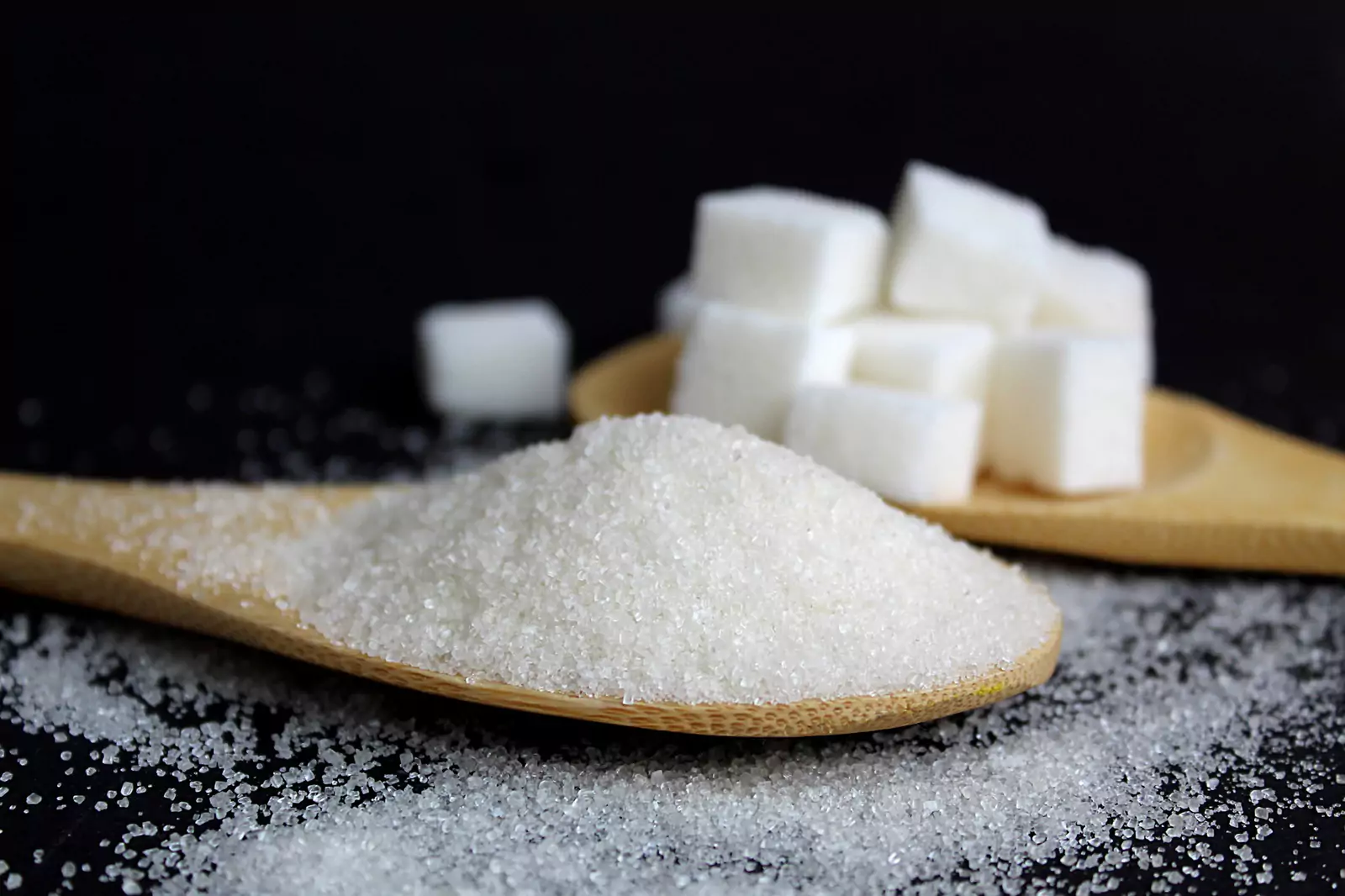






Is Pineapple good for Diabetics?


Table of Contents
- Pineapple and diabetes
- Carb counting for pineapple
- The plate method
- Glycemic Index Report on Pineapple
- Common GI Score of Pineapple
- Exception: Malaysian Pineapple
- The Good and Bad of Pineapple for Diabetics
- Benefits
- Boosts Immune System
- Raises Overall Health with Various Antioxidants
- Cautions
- Be aware of High GI Pineapple
- How Should Fresh Pineapple Be Served?
- Tips for Eating Pineapple with Diabetes
- Conclusion:
- Enjoy Pineapple with SugarMD Advance Glucose Support
- About The Author
For individuals living with diabetes, fruit choices can be a frustrating source of confusion. Pineapple is one of the sweetest fruits, but is it a safe snack for diabetics? In this article, we’ll explore the carb content, glycemic index, benefits, and considerations of pineapple for diabetics. We’ll also provide tips on how to enjoy pineapple properly and safely as a diabetes management strategy.
Pineapple and diabetes
Pineapples are a popular tropical fruit, beloved for their sweet and tart flavor. But is pineapple good for diabetics, and can diabetics eat pineapple? Although pineapple is a healthful fruit with some nutritional benefits for diabetics, it does contain carbohydrates, so the answer isn't as straightforward as with other fruits.
When considering the effect of carbohydrates in pineapple on a diabetic's blood sugar, it is important to factor in the amount of pineapple being consumed. A serving of pineapple is typically one cup, and one cup of pineapple provides 20-22 grams of carbohydrates.
While this is not a large amount, diabetics should factor it into their total daily carb intake. Additionally, pineapple contains natural sugars, so this should be taken into account as well. On the upside, pineapple is a source of vitamins and minerals, such as vitamin C and manganese.
It also contains dietary fiber, which can help slow down the absorption of carbohydrates, minimizing the effects on blood sugar. Furthermore, pineapple contains antioxidants, which may protect against diabetes-related complications.
Carb counting for pineapple
When considering a food like pineapple for a diabetic diet, it is important to understand the carbohydrate content, glycemic index (GI), and potential impact on blood sugar levels. The carbohydrates in pineapple mainly consist of simple sugars (glucose, fructose, and sucrose) and dietary fiber. One cup of diced pineapple (165 g) contains around 20-22 g of carbohydrates.
Foods containing carbohydrates trigger an increase in blood glucose levels, but their glycemic index (GI) and glycemic load (GL) can influence the extent of this effect. With this in mind, diabetics should take into account the portion size when consuming pineapple as part of their diet
The plate method
When incorporating pineapple into the diet, the Plate Method is an effective way of ensuring that meals remain balanced and healthy. Essentially, the Plate Method involves building meals around carbohydrates, protein, salad, and vegetables. This ensures that meals are not too carb-heavy, as too many carbohydrates can be detrimental to managing diabetes.
Following this method, a single plate should contain:
• About half of the plate is filled with non-starchy vegetables
• Approximately one-quarter of the plate is filled with protein
• The remaining quarter of the plate is filled with a healthy carbohydrate, like one cup of pineapple By following this method, diabetics can enjoy pineapple as part of a healthy, balanced meal.
While it is important to account for the number of carbohydrates consumed when following the Plate Method, it is also crucial to consider the carbohydrate's GI. As pineapple is a medium-GI fruit, it is a good choice for diabetics as it will provide steady glucose release and help lower blood sugar in the normal range.
Glycemic Index Report on Pineapple
The glycemic index (GI) is an important indicator of how quickly carbohydrates in a food raise a person's blood sugar level. Eating foods with a low GI can help diabetics manage their blood sugar while eating foods with a high GI can cause sharp spikes in blood sugar.
Pineapple is a fat-free food containing high amounts of vitamins and fibers, and diabetics may wonder how it fits into a diabetes-friendly diet. While pineapple contains a moderate amount of natural sugar, it also has a low to medium glycemic index, which is beneficial for people with diabetes.
Common GI Score of Pineapple
The average GI score of raw pineapple is 66, which is considered medium on the glycemic index. This means pineapple glycemic index will not cause a significant sugar spike in most people. However, the GI score can vary depending on ripeness and the way it is prepared. For example, pineapple juice and canned pineapple good, tend to have higher GIs than fresh pineapple, whereas frozen pineapple typically has a lower GI.
Overall, pineapple is a good choice for people with diabetes, as it has a low glycemic index and relatively low carbohydrate content, which can help to keep blood sugar levels in check. When it comes to portion size, a 1-cup serving is typically all that is needed to get many of the health benefits of pineapple.
Exception: Malaysian Pineapple
Malaysian pineapples are renowned for their sweetness and juiciness. This pineapple is rich in nutrients but can be high on the glycemic index. However it is not a good choice for diabetics due to their high glycemic index. A study has shown that it has a Glycemic index of 82.
The Glycemic index is a measure of how quickly a food causes a person's blood sugar levels to rise after eating it. Malaysian pineapples are considered to be high in sugar which can lead to an increase in blood sugar levels that is not suitable for those suffering from diabetes.
Therefore, it is important that diabetics take care to avoid consuming Malaysian pineapples. It is also important to be aware that other types of pineapples may not have such a high glycemic index, so diabetics should explore those options instead if they would like to enjoy the taste and nutritional benefits of consuming pineapples.
Additionally, while Malaysian pineapples should be avoided by diabetics, they are still a great source of vitamins, minerals, antioxidants, and other nutrients that can be beneficial for people with diabetes. Therefore, rather than avoiding them completely, diabetics should just be conscious of limiting their intake and explore other types of pineapples.
The Good and Bad of Pineapple for Diabetics
When it comes to diabetes management, there is no one-size-fits-all solution. Eating pineapple is no exception. Although pineapple can be a nutritious and tasty addition to your diet, it’s important to understand its effects on your blood sugar before you add it to your plate.
Benefits
Pineapple offers many benefits for diabetics, as it has a low to medium glycemic index and contains a moderate amount of carbohydrates. This makes it a good choice for managing blood sugar levels, as well as providing essential vitamins and minerals. It contains a moderate amount of carbohydrates.
This is beneficial for people with diabetes as it can provide a steady source of energy that can help to prevent sugar spikes or drops. Furthermore, pineapple is an excellent source of micronutrients, such as potassium and manganese. Potassium helps to regulate blood pressure and can have a beneficial effect on blood sugar levels.
Manganese is essential for blood sugar regulation and has antioxidant properties, which can help to protect cells from damage. Finally, pineapple is high in fiber, which helps to slow the absorption of sugar and can aid digestion. For people with diabetes, this can be beneficial in managing blood sugar levels.
Boosts Immune System
Pineapple is a nutritious and delicious fruit that has several potential health benefits ranging from boosting the immune system to aiding weight loss. Pineapple is a good source of vitamin c and manganese, minerals, and antioxidants, making it a good food for people to boost their immune systems.
It is a fantastic source of manganese, a mineral that helps regulate blood sugar levels. It is also high in Vitamin C and Vitamin A, two nutrients that help support the body’s immune system. Additionally, Pineapple has a low glycemic index, which means that it won’t cause an unnatural spike in blood sugar levels.
In conclusion, pineapple is a nutritious and delicious fruit that can be beneficial to boost immune system. Furthermore, pineapple has a low-medium glycemic index, which means that the carbohydrates in pineapple are slowly digested, resulting in more stable blood sugar levels.
Raises Overall Health with Various Antioxidants
Pineapple is packed with nutrients that can provide a variety of health benefits, especially for diabetics. It is rich in vitamins, minerals, and antioxidants that can help to maintain overall health and well-being. One of the most powerful antioxidants contained in pineapple is vitamin C, which can help to neutralize free radicals in the body.
The high levels of Vitamin C contained in pineapple also make it a great source of dietary fiber. This can help to slow down digestion, meaning that the carbohydrates contained in pineapple are broken down more slowly, resulting in a lower glycemic index. Vitamin C is an important micronutrient that plays a crucial role in the body.
It offers numerous health benefits, including acting as an antioxidant. Antioxidants help protect cells from damage caused by free radicals, which are unstable molecules produced during regular metabolism and from exposure to environmental toxins such as cigarette smoke and UV radiation from the sun.
Where vitamin C can help reduce oxidative damage in the body and help protect against chronic diseases such as cancer, heart disease, and diabetes. It can also keep your immune system strong and can even help reduce the severity and duration of colds and other respiratory infections.
It is also important for maintaining healthy skin and aiding in wound healing. Eating a diet rich in fruits and vegetables is the best way to get your daily dose of vitamin C. Pineapple also contains bromelain, an enzyme believed to have anti-inflammatory effects that can help reduce inflammation and improve joint pain.
Bromelain has also been found to help reduce blood sugar levels, which can be beneficial for diabetics. The combination of antioxidants, fiber, minerals, and carbohydrates makes pineapple a good choice for diabetics.
Eating pineapple in moderation helps to provide numerous health benefits, from reducing inflammation and joint pain, to maintaining balanced blood sugar levels. All of these benefits contribute to overall health and can help diabetics maintain their individual health plans.
Cautions
Although pineapple is generally considered a healthy food for people with diabetes, there are still some key cautions to consider before adding this fruit to your diet. The main concern for people with diabetes is the level of carbohydrates found in pineapple. A single cup of pineapple cubes contains approximately 21.6 grams of carbohydrates.
Therefore, it is important to monitor and track your daily carbohydrate intake when incorporating pineapple into your diet. In addition, the glycemic index of pineapple can be quite high. The glycemic index measures food in terms of its ability to affect blood sugar levels.
Foods that have a glycemic index of less than 55 are considered low glycemic, while those with a higher number may spike blood sugar levels. Malaysian Pineapple has a glycemic index of up to 82, which can potentially cause a spike for those with diabetes.
Therefore, it is best to consume pineapple in moderation to avoid any potential negative effects. Furthermore, pineapple is not recommended for those with gestational diabetes due to its high sugar content.
Additionally, it is important to keep in mind that canned pineapple contains added sugar, which can be unhealthy and can increase blood sugar levels. If you decide to consume canned pineapple, be sure to read the nutrition label and look for a low-sugar variety.
Be aware of High GI Pineapple
Pineapple has long been lauded as one of the most nutritious fruits. It contains important vitamins, minerals, and enzymes that can help improve overall health. But, for people with diabetes, the high carb content of pineapple and its glycemic index (GI) can be a cause for concern. As explained earlier, the glycemic index is a measure of how quickly a food increases your blood sugar levels.
Foods with a higher GI rating will cause your blood sugar to spike more quickly. Pineapple has a GI of 66, which puts it in the medium range. That means eating pineapple can still lead to significant spikes in your blood sugar. If you have diabetes, it is important to keep your breakfast and afternoon snack treats to a minimum, as it is easy to over-consume sugars and carbohydrates.
Also, it is advisable to keep a check on the portion size. While pineapple can be a healthy snack for diabetics, it is important to remember that it should be eaten in moderation and combined with other healthy snacks. Eating pineapple does have numerous health benefits. It is an excellent source of vitamin C and manganese, both of which can help keep your immune system strong.
Additionally, the bromelain enzyme found in pineapple can help reduce inflammation and improve digestion. In conclusion, it is important for those with diabetes to be aware of the GI rating of pineapple and its carb content. However, if eaten in moderation and combined with other healthy fruits, pineapple can still be a healthy part of a diabetic’s diet.
How Should Fresh Pineapple Be Served?
Raw pineapple or pineapple that has been frozen is the healthiest choice. Are canned pineapples good for you? Cupped, canned, or processed fruit has more sugar than fresh fruit, especially if it is in syrup. If the only option is canned, a person can look for canned in water instead of syrup. Choose raw or frozen pineapple instead of pineapple juice or dried pineapple, which often has more sugar and can cause blood sugar levels to rise quickly.
People who have eaten low-GI foods like brown rice, beans, lean proteins, barley, healthy fats, whole-grain pasta or bread, and rolled oats can try pineapple as a dessert. The easiest way to eat pineapple is raw, either as a side dish or as a dessert. Or, they can grill it and add it to the main dish, which is how most Asian and island dishes are made.
Tips for Eating Pineapple with Diabetes
Pineapple is a delicious and nutritious fruit that can be enjoyed by people with diabetes. However, it is important to be aware of the carbohydrate and sugar content in pineapple since these can affect blood sugar levels. It is also important to consider the glycemic index of pineapple when planning meals for people with diabetes.
When it comes to carbs in pineapple, one cup (155 grams) of raw pineapple contains about 21 grams of carbs. It is important to note that pineapple is also rich in fiber, which is a type of carbohydrate that can help slow the digestion of sugar, in turn reducing the overall glycemic response.
Since the glycemic index of pineapple is 66, it is considered a medium-glycemic food, meaning that it is digested and absorbed slowly, reducing the risk of blood sugar spikes but being in the medium range, there’s still a chance of sugar spikes in the blood. This makes a serving of pineapple a good choice for people with diabetes who are looking to maintain steady blood sugar levels.
When it comes to introducing pineapple into the diet of people with diabetes, it is important to consider portion size. One cup (155 grams) of pineapple is considered one serving, and it is best to have one serving per day or less since the carbs can quickly add up.
You can also opt for fresh pineapple over canned pineapple, as the canned variety may contain added sugars and preservatives that can further increase blood sugar levels. In addition, when incorporating pineapple into meals, be sure to include a source of protein and fat, such as nuts or seeds, to further slow down the release of sugar in the bloodstream.
Doing so can help balance blood sugar levels and provide long-lasting energy for people with diabetes. Overall, pineapple can be a great choice for people with diabetes when managed properly. By being mindful of portion size, choosing fresh over canned, and incorporating protein and fats into meals, people with diabetes can enjoy the health benefits of pineapple without having to worry about spiking their blood sugar levels.
Conclusion:
Enjoy Pineapple with SugarMD Advance Glucose Support
When looking at the question of if pineapple is good for diabetics, it's important to consider the nutritional value of pineapple, the glycemic index of pineapple, and the impact of carbohydrates in pineapple on blood sugar levels. Nutrient-rich pineapple offers beneficial fiber and antioxidants, making it a beneficial addition to a diabetic diet.
Consuming pineapple in moderation is safe for diabetics; however, its high sugar content can cause a spike in blood sugar levels. Therefore, it's important for diabetics to keep an eye on their blood glucose levels when eating pineapple.
Fortunately, consuming pineapple with SugarMD Advanced Glucose Support can help to reduce the impact of carbohydrates on blood sugar levels and aid in glucose control. SugarMD Advanced Glucose Support is a specialized supplement specifically designed to help diabetics maintain healthy blood sugar levels.
Perfect for when you need a sweet treat, SugarMD Advanced Glucose Support can help to make pineapple a safe and delicious diabetic-friendly food.
About The Author
Who is Dr. Ergin? Dr. Ahmet Ergin is an endocrinologist interested in and passionate about diabetes care. Dr. Ergin earned his medical degree with honors at Marmara University School of Medicine in Istanbul, Turkey.
Then, he completed his internal medicine residency and endocrinology fellowship at Cleveland Clinic in Cleveland, Ohio. He is a board-certified Internal Medicine and Endocrinology, diabetes, and metabolism physician. He is also a certified diabetes education specialist.
Disclaimer: Any information on diseases and treatments on this website is for general guidance only. It must never be a substitute for the advice your doctor or other qualified healthcare professional provides. Always seek the advice of your physician or other qualified healthcare professional’s advice with questions regarding your medical condition.
Written By Dr. Ahmet Ergin
456 total articles
Meet Dr. Ahmet Ergin, a highly skilled and dedicated endocrinologist with a passion for diabetes care. Dr. Ergin earned his medical degree with honors from Marmara University in Istanbul. He completed internal medicine residency and endocrinology fellowship at Cleveland Clinic. Dr. Ergin is board-certified in Internal Medicine, Endocrinology, Diabetes, and Metabolism due to his vast medical expertise. He's a certified diabetes educator, author of “The Ultimate Diabetes Book,” and founder of “the SugarMD YouTube channel.” Dr. Ergin offers exceptional diabetes care to his patients in Port Saint Lucie, FL, helping them manage effectively. For a closer look into his insights and experiences, connect with Dr. Ahmet Ergin on LinkedIn, Instagram, and YouTube.”
Disclaimer: These statements have not been evaluated by the Food and Drug Administration. Information on this website isn't intended to treat, cure or prevent any disease. Discuss with your doctor and do not self-treat.
Products















